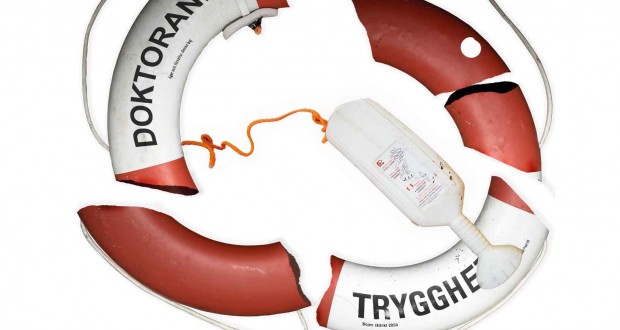Doctoral positions based on scholarships are unfair and unattractive – therefore, all doctoral students at Sweden’s seats of learning should be employed. This proposal is brought forward in a new report.
The situation for doctoral students at Swedish seats of learning has long born the stamp of insecurity. Therefore, an investigation was initiated last autumn, with the goal to determine how conditions can become more secure and how attractive paths for potential young researchers can be created.
The driving force behind the investigation is Ann Fust, who handed her work to Helene Hellmark Knutsson, minister for Higher Education and Research, at the end of March.
“More secure conditions needed”
Among other things, the report showed that the situation of doctoral students working on scholarships must become more secure. Today, their employment terms vary, and many do not even have the same rights as doctoral students who are not financed by external scholarships.
To amend this, all doctoral students should become formally employed, the report states.
“This should be done not only to create equal conditions among doctoral students, but also to attract the most acclaimed and suitable doctoral candidates to Swedish seats of learning. It creates a competition advantage,” Ann Fust says.
According to Fust, the transition from doctoral students with scholarships should be implemented in a ten-year period – but it should also include some exceptions. Lund University is one example that receives funds for doctoral students – these funds are at the risk of not being usable if the transition process is undertaken too quickly, she writes in her report.
Pose questions
These “exceptions” pose questions. Ylva Persson is the vice chairperson of the student union of doctoral students and she is worried about what the wording might entail.
“The exceptions are said to apply for doctoral students who are part of capacity-building programmes and programmes financed by the EU, or ‘equivalent,’” she says.
Doctoral students part of capacity-building programmes come from countries without or with very limited research capacity. It is unclear what would correspond to that, and that makes it problematic, according to Ylva Persson.
“’Corresponding’ could mean anything, and that could pose a problem,” she says.
“We are glad to have doctoral students working on scholarships”
Ylva Persson is positive towards the investigation as a whole and thinks that a formal employment for doctoral students on scholarships would solve several other problems.
“We are glad to have doctoral students working on scholarships, as long as everyone receives equal payment and the same rights for the same amount of work. What is needed, then, is that these are topped-up, and that is something that is suggested in the report – something we are hoping for and working towards,” she says.
Translation: Richard Helander






